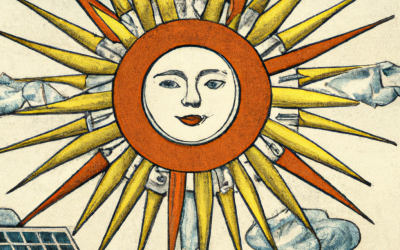The silliest of seasons exists around global conferences of the United Nations, whether they address racism, poverty, children or the environment. Once in a while, a UN conference addresses them all — this time, the World Summit on Sustainable Development, which has even veteran warriors for good causes blanching at the banality. It’s a matter of intellectual rigour — or not.
We are told that the planet can be saved only if people in wealthy nations cut their levels of personal consumption and then give away far more of their smaller pie to developing countries that suffer under the yoke of the polluting rich.
Was any policy prescription ever more irrelevant to human nature? Was any policy prescription ever more blind to the real causes of the disparities that exist between the wealthy and the poor?
The cleanest countries on Earth are the richest, and the most destructive of nature the poorest, which stands to reason. Wealthy countries can afford the luxury of high standards in the environment. Wealthy people like the benefits of heath and beauty that come with affluence, and insist on it in their polities.
Look at the vastly improved quality of water and air in Europe and North America over the past 40 years. Salmon are back in the Thames upstream from London, and the air over New York has visibly improved. But oh, say the prophets of penury who populate the pinnacles of prognostication in “civil society” and the commentary forums on CBC Radio: North Americans are the biggest polluters in the world, defined by their collective consumption of energy.
This is the latest frontier in the campaign against capitalism, a campaign that collapsed in moral ruin through Marxism, imploded through intellectual bankruptcy in silly movements such as the Club of Rome, and now reappears with visions of environmental Armageddon in its chronic effort to opt out of the tiring business of productive change.
If they cannot blackmail us by celebrating the social compassion of Brezhnev and Castro, they will try to scare us to death with visions of material ruin caused by higher productivity, higher consumption, too much emphasis on individual responsibility and, well, too much progress. They say Mother Earth can’t stand our standard of living, when only higher standards of living can save her.
Progress is a big word. It goes far beyond material wealth to encompass values and spiritual space. Which brings us to Enron and all that.
Another great thing about capitalism is how intolerant it is of corruption. All the scandals that afflict the market now in the United States demonstrate once again how temporary the benefits are of corruption in the free-market system, compared with state-run kleptocracies on the right and left in so many poor countries. The penalty for corruption in truly free markets is a public collapse in share prices as honest investors flee and government regulators prosecute.
Just a whiff of corruption in a publicly traded company destroys market capitalization and attracts legal penalties, which are stiffening by the day.
Compare this to the chronically corrupt, nepotistic cultures of Latin America, Asia and Africa, whose many delegates to the Earth Summit are berating North Americans for their world-beating low per-vehicle exhaust emissions, and high water and air standards. And consider last week’s report of Transparency International’s 2002 Corruption Perception Index, which puts countries such as Bangladesh and Nigeria at the bottom of the pile of habitually dishonest societies, all of them terribly poor.
These countries are not corrupt because they are poor; they are poor because they are corrupt — and because they are illiberal in so many other ways, including their treatment of women.
Honest investors learn to stay away from countries that levy a “corruption tax” on their profits. And many developed countries prohibit their own nationals from playing the bribery games in foreign climes. This is the lesson that Russia is learning, and that China needs to learn. Markets can function in corrupt societies, but only in the interest of the few. The “corruption tax” becomes a social tax by denying millions the benefits of sustainable development through a vibrant capitalism.
The more transparent the regime in a capitalist economy, and the more society supports it with an ethos of honesty, the richer the society will be and the more environmentally sound — a virtuous circle.
Try this argument out at the UN, where rep. by pop. and the presence of countless NGOs gives the agents of the other, self-inflicted side the loudest voices, often abetted by soft-headed allies among the wealthy.
We in North America are among that global wealthy, which is one consequence of our virtue and no cause of anyone else’s despair.


